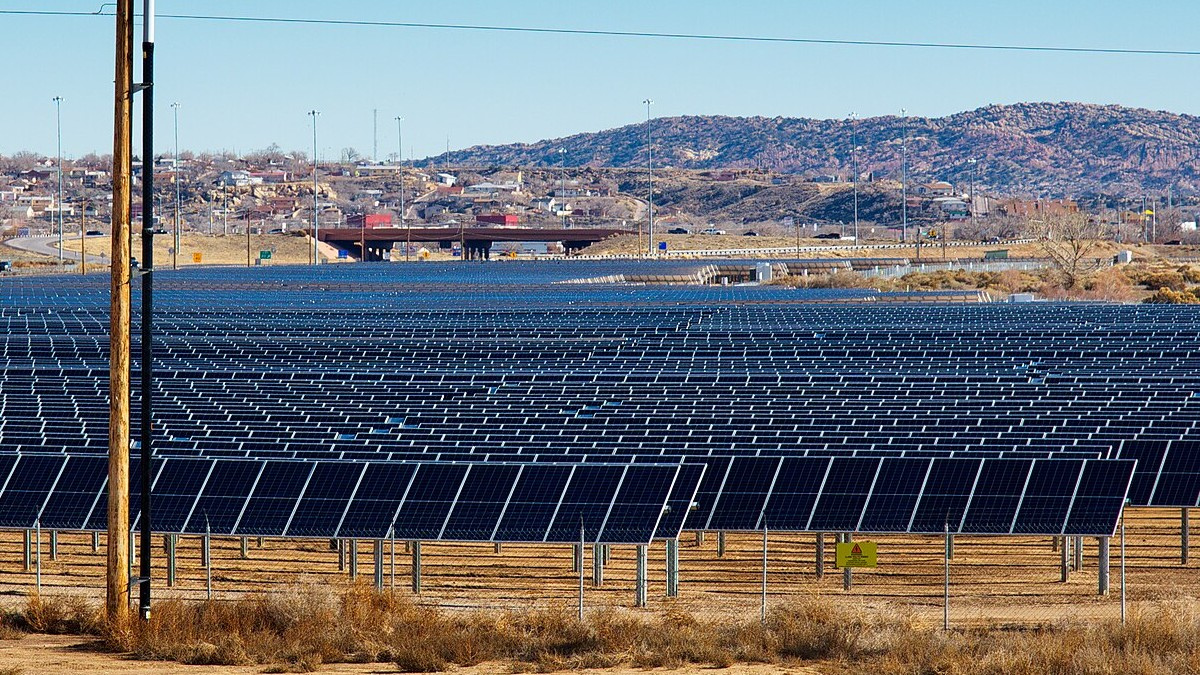
With photo voltaic main the way in which, renewables may meet nearly half of international electrical energy demand by the tip of this decade, says a brand new IEA report.
The Worldwide Power Company (IEA) simply launched its “Renewables 2024” report, which initiatives that by the tip of this decade, international renewable vitality capability is ready to develop by greater than 5,500 gigawatts (GW).
To place that in perspective, that’s about as a lot energy capability as the present mixed whole of China, the EU, India, and the US.
From 2024 to 2030, new renewable installations are anticipated to be practically thrice larger than what we noticed between 2017 and 2023. China is main the way in which and will probably be chargeable for nearly 60% of all new renewables added in that time-frame, that means it should account for practically half of the world’s renewable energy capability by 2030. In the meantime, India is seeing the quickest development amongst main economies.
Photo voltaic is the largest driver of this surge, with photo voltaic PV anticipated to make up 80% of the brand new renewable capability. That is due to the continued development of enormous solar energy vegetation and extra rooftop photo voltaic being put in by owners and companies. Wind can also be set for a powerful rebound, doubling its development charge between now and 2030 in comparison with the earlier seven years. Proper now, wind and photo voltaic are already the most affordable methods to generate new electrical energy in nearly each nation.
This speedy development means practically 70 nations – representing 80% of worldwide renewable energy capability – are on observe to fulfill and even exceed their present renewable vitality targets for 2030. Whereas the world is ready so as to add a formidable quantity of renewable capability by 2030, it could nonetheless fall barely wanting the aim set at COP28 to triple capability by then. However the IEA says that assembly this aim is doable if governments make daring commitments, improve worldwide cooperation, and deal with excessive financing prices, particularly in high-potential areas like Africa and Southeast Asia.
IEA Government Director Fatih Birol highlighted that renewables are increasing quicker than many governments may even set new targets. He emphasised that it’s not nearly emissions reductions or vitality safety – it’s as a result of renewables are merely the most affordable choice for brand new energy technology in most nations. “By 2030, we count on renewables to be assembly half of worldwide electrical energy demand,” Birol mentioned.

The IEA report warns, nonetheless, that governments might want to step up efforts to combine photo voltaic and wind into energy grids. Some nations are seeing renewable energy technology curtailed – or not even used – at charges of as much as 10%. To repair this, nations might want to increase energy system flexibility, streamline allowing processes, and construct or modernize electrical grids and attain 1,500 GW of storage capability by 2030.
The report additionally appears to be like at renewable manufacturing, particularly for photo voltaic. International photo voltaic manufacturing capability is predicted to exceed 1,100 GW by the tip of 2024, far outpacing demand. This oversupply, primarily coming from China, has pushed down photo voltaic module costs but additionally put monetary stress on producers. In the meantime, photo voltaic manufacturing capability is predicted to triple in each India and the US by 2030, serving to to diversify the worldwide provide chain – although prices stay considerably larger exterior of China.
The massive takeaway? Renewables are increasing quicker than many anticipated, due to supportive insurance policies and enhancing economics. However to completely harness the potential of photo voltaic, wind, and different renewable vitality applied sciences, governments might want to work collectively to beat the monetary and infrastructure challenges that also stand in the way in which.
Dave Jones, impartial vitality assume tank Ember‘s director of worldwide insights, mentioned: “Policymakers are embracing photo voltaic and wind like by no means earlier than, however they’re nonetheless two steps behind the truth on the bottom. The market can ship on renewables, and now governments have to prioritize investing in storage, grids, and different types of clear flexibility to allow this transformation. The following half decade goes to be one heck of a journey.”
Learn extra: Costs fall for residential photo voltaic, demand is up for battery storage – EnergySage
FTC: We use earnings incomes auto affiliate hyperlinks. Extra.



